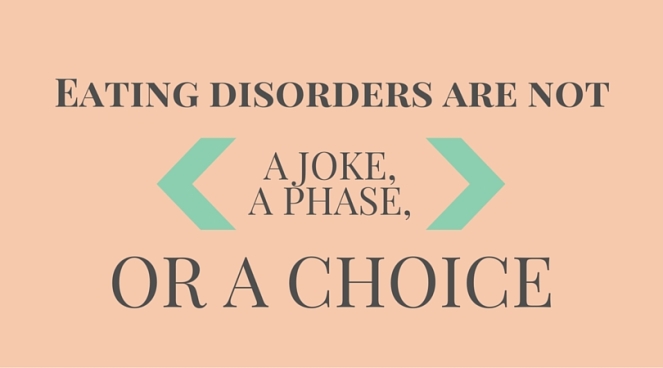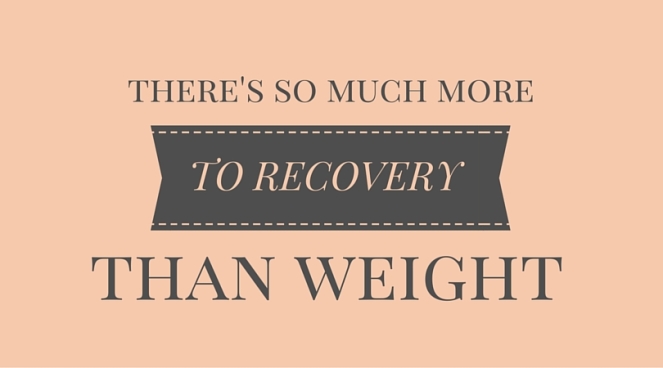 National Eating Disorders Awareness Week ended a few days ago, and over the course of the week I saw a lot of social media posts about eating disorders. Some of the people posting have or are currently suffering from an eating disorder, some are friends and family of people with an eating disorder, and others are ignorantly supportive (that’s a saying…right?). This post is for that last group.
National Eating Disorders Awareness Week ended a few days ago, and over the course of the week I saw a lot of social media posts about eating disorders. Some of the people posting have or are currently suffering from an eating disorder, some are friends and family of people with an eating disorder, and others are ignorantly supportive (that’s a saying…right?). This post is for that last group.
What I mean by ignorantly supportive is that they agree that eating disorders are bad (duh), but are lacking knowledge about the variety of illnesses. A quick Google search will tell you that over 20 million women and 10 million men suffer from a clinically diagnosed eating disorder. Unfortunately, there are a lot of misconceptions about those affected. Hence, the purpose of this post.
- Having an eating disorder is not a choice. Eating disorders are a serious mental illness that has a variety of causes. Many people ask, “why don’t they just eat normally?”. Unfortunately, things aren’t so simple. Many people with an eating disorder feel as though they are a prisoner to their illness and wish they could have a healthy relationship with food and their body.
Remember: an eating disorder is not a diet, but a mental disorder with very serious side effects.

- People with eating disorders eat. That’s right – they actually eat. In fact, this population actually ranges in weight from underweight to obese. Eating disorders are seen in a variety of forms including self-imposed starvation and uncontrollable overeating. There is even an emerging eating disorder termed orthorexia. Orthorexia is defined as an unhealthy obsession with choosing “clean” or “pure” foods.
Remember: it is not about what the person is eating, but their relationship with food.
- You have probably offended someone with at eating disorder. Oh, you don’t remember doing that? That’s because you didn’t know. Many people who are struggling with or recovering from an eating disorder have certain “buzz words” or situations that cause stress. These situations are different for everyone affected, but can include phrases as simple as “you look healthy” or “you should have another piece”. Showing a person a photo from a time they were struggling may also be a trigger.
Remember: try to be respectful of those around you – you never know how the words you are saying will be interpreted.

